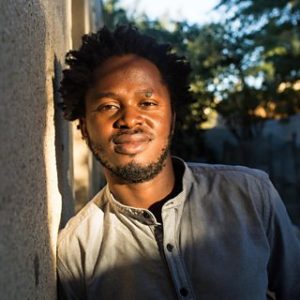 On the 13th July, the BBC put up a podcast
On the 13th July, the BBC put up a podcast
‘The Unmaking of a Boy Soldier’.
This dramatic true story is about the experience of Ishmael Beah, a young boy in Sierra Leone who survived the terrible civil war and offers his personal account of how he was taught to fight and kill those he was told were his enemies. His story is as troubling as it is lifting and certainly worthy of listening to. It will be available on BBC Sounds until July 2021, It contains strong verbal imagery,
The interview provides some context as to how the infrastructure of a country was destroyed, how poverty became endemic and why now there remains so much need for help and clean water.
The briefest of background for those who might be interested. Sierra Leone achieved independence from Britain in 1961. In the 1970’s the ruling ‘All Peoples Congress’ (APC) led by Siaka Stevens then dissolved parliament and declared Sierra Leone a ‘Presidential Republic’, headed by Stevens. Many unfair disparities in the social culture of Sierra Leone however started stirrings of unrest and an escalating instability began initiating conflicts between communities and the state. This was heightened when all opposition to the APC became physically suppressed and the act of creating alternative political parties was made illegal. In 1985 Stevens handed over the presidency to Joseph Saidu Momoh, who in 1991 formed a new constitution of Sierra Leone, but the growing tensions resulted in an insurgence and the formation of a major rebel group, the Revolutionary United Front (RUF) and this launched the brutal, ferocious and sustained civil war.
Momoh was overthrown, the country, unable to control the war became under military rule from 1992, but it could not contain the violence. The civil war continued, sweeping through the country. Fighting armies often unable to differentiate between military and different rebel factions due to the lack of uniforms, became autonomous and confusion as to who was fighting who turned groups of amateur soldiers, many involving children as young as 7, into survival units. Roving groups trained and conditioned to kill would destroy villages, massacre those who might offer resistance or appear to be a threat. Many, many atrocities were committed. Despite various elections and attempted coups, the situation continued for 10 years until January 2002 when the then President, Ahmad Tejan Kabbah managed to engineer sufficient support from the people of Sierra Leone and with the help of the British Government, the African Union and the United Nations, announced the end of the civil war.
Alive and Well’s first team went to Sierra Leone in 2010. Even 9 years after the end of the war, the aftermath of the destruction was clearly evident, reflected both in the people and the infrastructure. We played only the smallest of parts in assisting some villages improve their chances of healthy lives by supplying clean water from new wells.
But even so, the difference was dramatic. In just a few months infant mortality plummeted, disease reduced and people could concentrate more on their lives and the futures of their families. None of this would have been possible without the kind and generous donations made by those who helped us. We still desperately need funds to maintain the 80 wells supplying water to some 2000 people. If you feel you could support us, just a few pounds a month, a sum most people would not even notice, it would literally help us save more lives. Those who are recovering from this war do not need the added peril of the only drinking water available being unfit for human consumption.
Please help.
Donations can be made by clicking any link on these pages.
Thank you.
